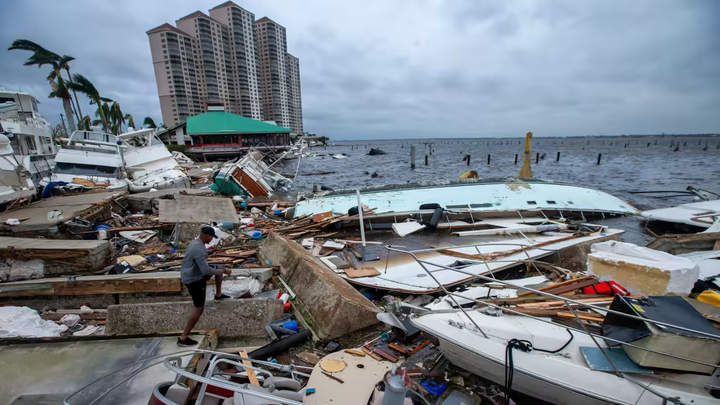The Role of Compound Climate and Weather Extreme Events in Creating Socio-economic Impacts in South Florida
 Image credit: FINANCIAL TIMES
Image credit: FINANCIAL TIMES
Abstract
Natural hazards such as hurricanes, floods, and wildfires cause devastating socio-economic impacts on communities. In South Florida, most of these hazards are becoming increasingly frequent and severe because of the warming climate, and changes in vulnerability and exposure, resulting in significant damage to infrastructure, homes, and businesses. To better understand the drivers of these impacts, we develop a bottom-up impact-based methodology that takes into account all relevant drivers for different types of hazards. We identify the specific drivers that co-occurred with socio-economic impacts and determine whether these extreme events were caused by single or multiple hydrometeorological drivers (i.e., compound events). We consider six types of natural hazards: hurricanes, severe storm/thunderstorms, floods, heatwaves, wildfire, and winter weather. Using historical, socio-economic loss data along with observations and reanalysis data for hydrometeorological drivers, we analyze how often these drivers contributed to the impacts of natural hazards in South Florida. We find that for each type of hazard, the relative importance of the drivers varies depending on the severity of the event. For example, wind speed is a key driver of the socio-economic impacts of hurricanes, while precipitation is a key driver of the impacts of flooding. We find that most of the high-impact events in South Florida were compound events, where multiple drivers contributed to the occurrences and impacts of the events. For example, more than 50% of the recorded flooding events were compound events and these contributed to 99% of total property damages and 98% of total crop damages associated with flooding in Miami-Dade County. Our results provide valuable insights into the drivers of natural hazard impacts in South Florida and can inform the development of more effective risk reduction strategies for improving the preparedness and resilience of the region against extreme events. Our bottom-up impact-based methodology can be applied to other regions and hazard types, allowing for more comprehensive and accurate assessments of the impacts of compound hazards.
CITATION:
Ali, J., Wahl, T., Enriquez, A. R., Rashid, M. M., Morim, J., Gall, M., & Emrich, C. T. (2023). The role of compound climate and weather extreme events in creating socio-economic impacts in South Florida. Weather and Climate Extremes, 42, 100625. https://doi.org/10.1016/j.wace.2023.100625